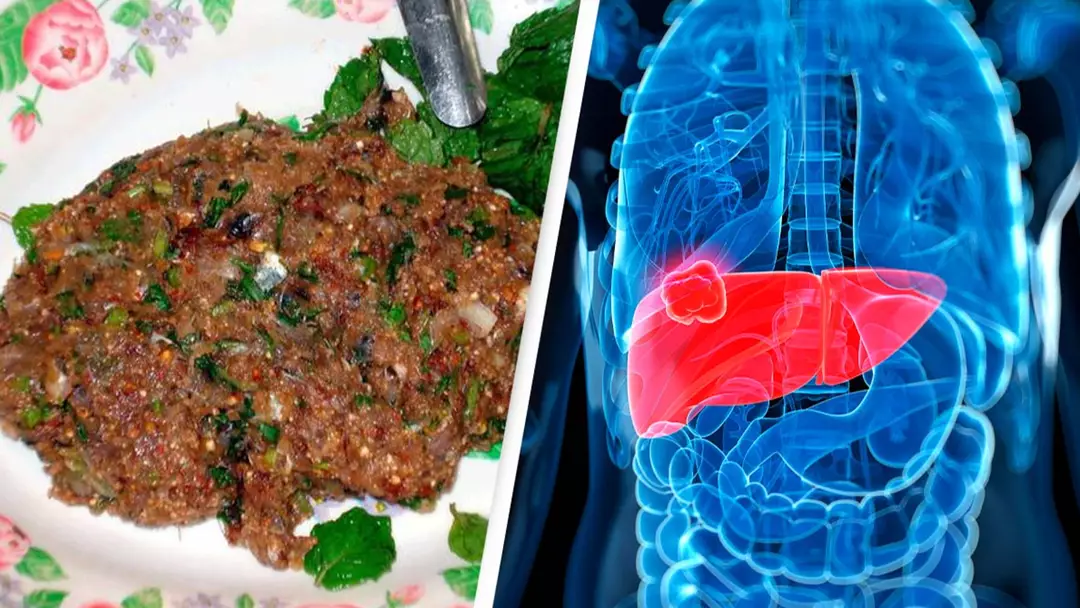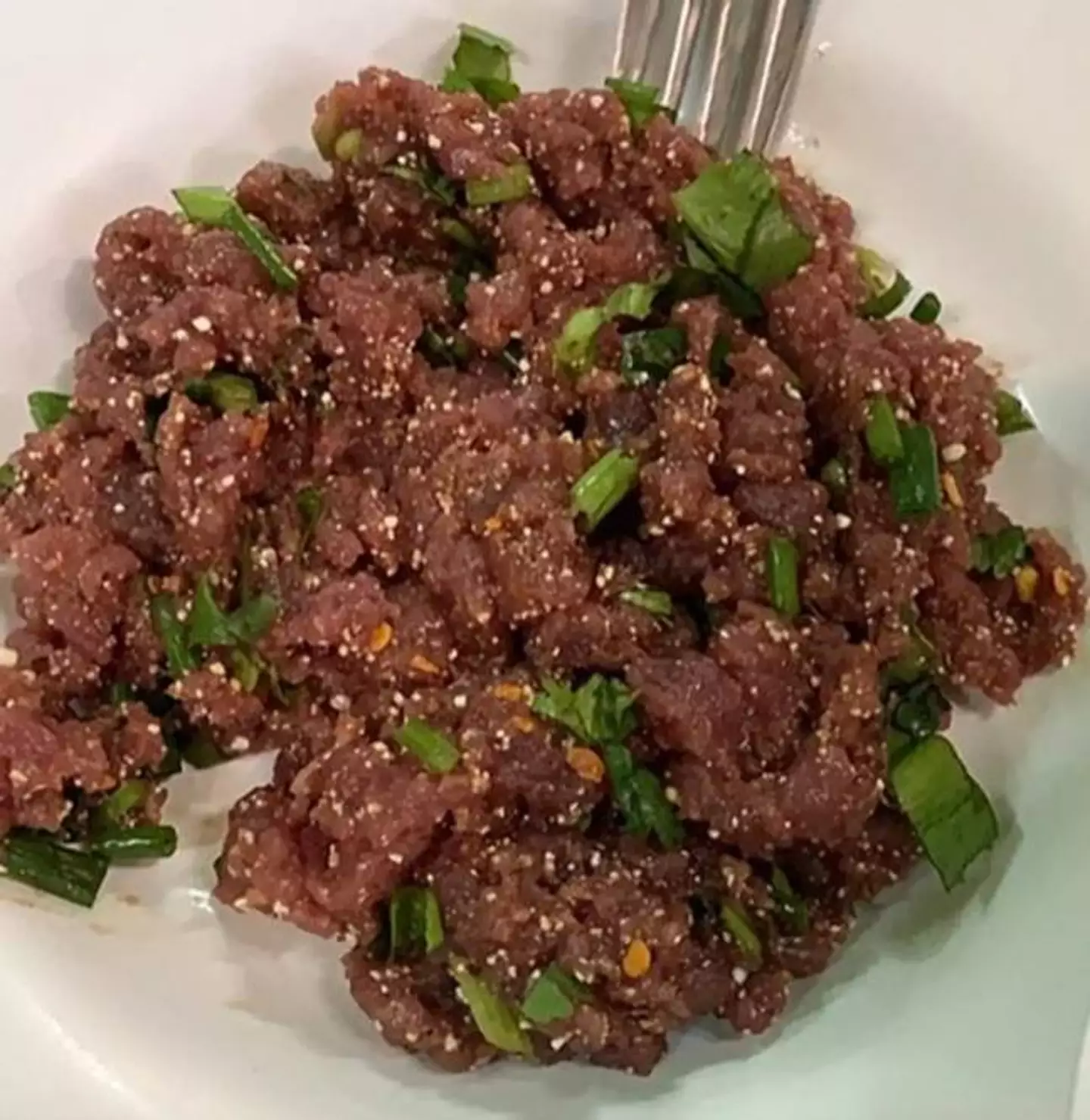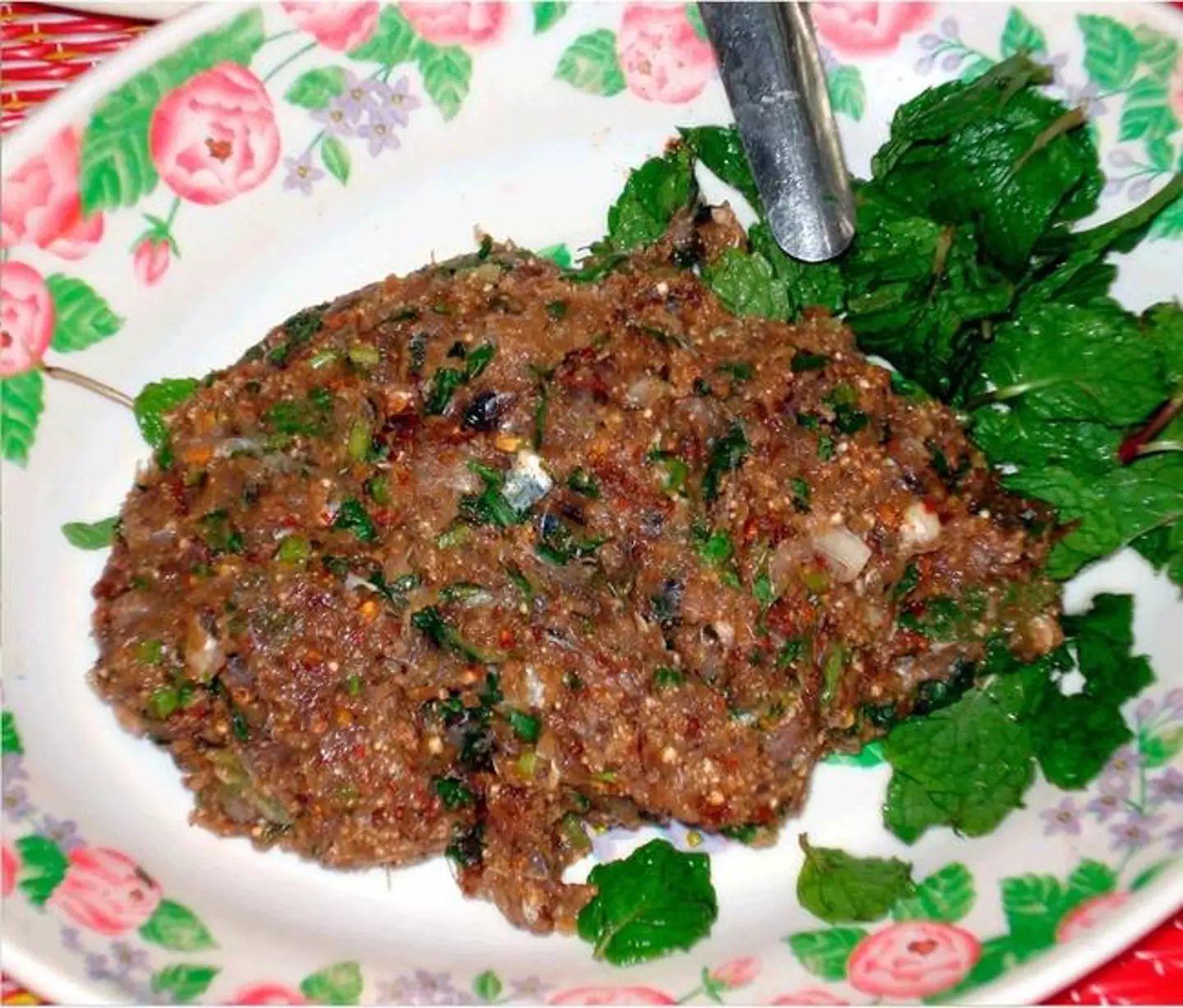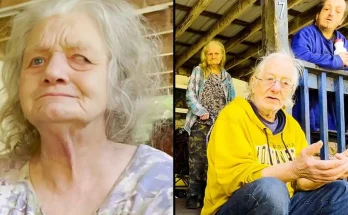
If you are conscious about your health, you’ll likely have certain foods in moderation but with this one dish once might be too many.
As you get older, being smarter with your food becomes more important but there are still some foods you likely should avoid altogether.
There is one particular Thai dish that can be deadly and is considered to take the lives of 20,000 people each year.
While on the surface the ingredients don’t seem all that threatening the backstory behind one of its key components tells a rather dangerous story.

Locals are hesitant to the change due to the taste and convenience of the meal. (Wikimedia Commons)
Koi Pla is the name of this deadly dish and it’s claimed that millions of people regularly tuck into it every year. But it isn’t the fact the raw fish is used that causes liver cancer.
Unfortunately, it’s reported that the fish in the dish is sourced from a body of water in the Mekong region.
The water that these aquatic beasts are farmed from contains parasitic flatworms.
According to medical experts, these flatworms can cause bile duct cancer and that’s why East Asia reportedly has the highest incidence of cholangiocarcinoma (CCA) in the world.
One man fighting against Koi Pla is Doctor Narong Khuntikeo – a man whose parents died from liver cancer after eating the delicacy.
“It’s a very big health burden around here,” the liver surgeon told Agence France-Presse.
“But nobody knows about this because they die quietly, like leaves falling from a tree.”
In 2017, the medical expert explained how he’d brought together a team of scientists, doctors and anthropologists in his work against the ‘silent killer’.

Koi pla is said to claim the lives of 20,000 Thai people each year. (Wikimedia Commons)
He and his squad of practitioners spent four years testing villagers from the Isaan region for the parasite using ultrasound machines and urine testing kits.
Results from the study found that as much as 80 percent of inhabitants from some communities were found to have ingested the deadly parasite.
While he’s trying to spread information and warnings over the koi pla dish, Khuntikeo previously claimed to have faced issues with the older generation.
“They’ll say: ‘Oh well, there are many ways to die,'” the health professional said.
“But I cannot accept this answer.”
One farmer from the Khon Kaen province, Boonliang Konghakot, does not have an issue with it, and said: “I used to come here and just catch the fish in the pond…it’s so easy to eat raw.”
Thanin Wongseeda, another villager who was being screened as part of Khuntikeo’s initiative, revealed: “I’ve never been checked before, so I think I will probably have it because I’ve been eating (koi pla) since I was little.”


